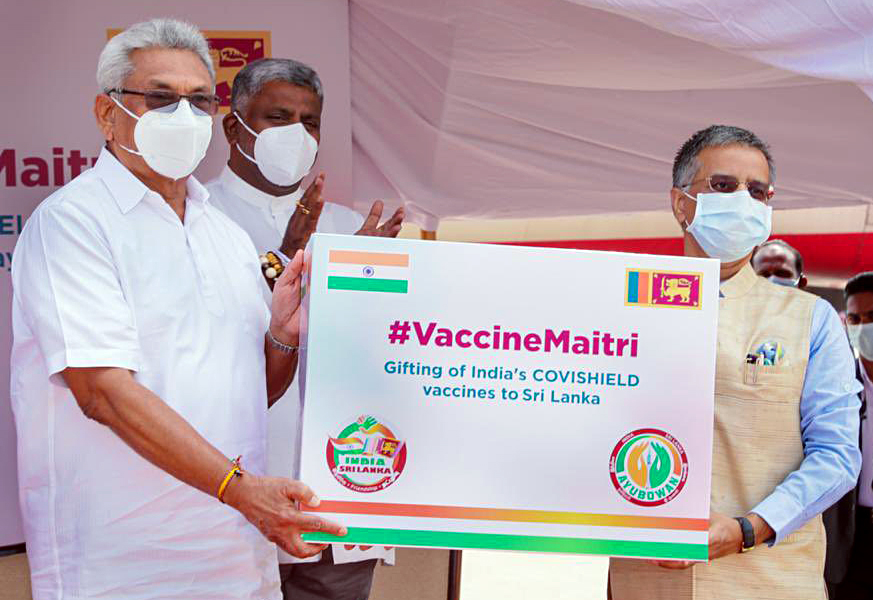A Quad exercise to deliver Indian vaccines to the countries that need it in Oceania would show that the Quad is a unique force for good in the region.
India’s vaccine diplomacy is a credit to the nation-showcasing India’s scientists, production facilities, ethos and foreign policy reach. So might it make sense to dovetail part of it into India’s growing strategic partnerships to reinforce and expand that reach even further?
THE LOCATION
Let me explain. The region of Oceania has well over a dozen independent countries, each with small populations. These include Tuvalu and Nauru with populations of around 11,000 people each. No, that’s not a typo. Tonga and Kiribati each have just over 100,000 people. Niue has around 1,600. These are real countries, with real votes in international forums, and in some cases extremely large maritime exclusive economic zones.
The five countries just mentioned are also among the few in the world with no cases of Covid. Several of the others on that coveted list are also in Oceania, including the Cook Islands (population approximately 17,000), Palau (18,000), Tokelau (14,000), and the Federated States of Micronesia (120,000).
The way they’ve achieved that is to cut off their countries from the rest of the world. The only people coming in-if any are allowed in at all-are on very carefully managed repatriation flights. That has meant some families have been separated for close to a year. Breadwinners, people who left for medical care or education, and others were caught outside the country when the world cut itself into quarantine cages with no release in sight.
In some cases, that has meant people are in places they can’t work legally, and are on expired visas. As “overstayers” they are jeopardizing their ability to be able to get other visas in the future and are exhausting the savings of their extended families, if they had any savings to begin with. The situation for many is dire, and getting worse.
But the countries of Oceania can’t risk letting in Covid. Most have limited medical facilities and some have very high rates of diabetes, heart disease and other non-communicable diseases that put the populations at even higher risk if Covid infiltrates the nation.
Most countries in the region are depending on the WHO-led COVAX system to get them vaccines eventually. China is providing 10 million of its vaccines to the system. The Economist Intelligence Unit just put out an estimate that at current COVAX rates some of the countries of Oceania many not be fully vaccinated until past 2023.
INDIA AND OCEANIA
You can see where this is heading. Since his first visit to the region in 2014, Prime Minister Narendra Modi said Oceania was an area where India should build better relations, and with a relatively small number of shots, Indian vaccines could save entire countries.
And, what seems like a difficulty-the complexity of logistics and delivery to a wide range of small islands scattered across the Pacific-might provide India another opportunity as well, the chance to build and practice interoperability with its Quad partners.
ROLE FOR THE QUAD
What’s happening in Oceania is essentially a slow motion Humanitarian Assistance and Disaster Relief (HADR) situation. In spite of the Quad having its origins in the Tsunami Core Group (India, US, Japan, Australia) response to the Indian Oceania tsunami of 2004, it is often painted as just being “anti-China”.
A Quad exercise to deliver Indian vaccines to the countries that need it in Oceania would show that the Quad is a unique force for good in the region, while giving the four countries a chance to work together over an extended period, identifying areas to shore up, and building interoperability and trust.
Each Quad country brings its own strengths to the exercise. The region is often divided up diplomatically, this is a chance for Quad partners to knit that together into a whole-of-zone overview, while showing the value of the partnership in peacetime.
India has the low cost, effective medical prowess. In some countries, Japan built hospitals and medical clinics, in others Australia has substantial diplomatic missions. The US is in “free association” with some countries in the region and the exercise would fit well with the newly funded US Pacific Deterrence Initiative, which has among its goals strengthening allies and partners’ capabilities, training and exercises, and logistics enablers.
The exercise would also identify and build up operational relationships with points of contact in each of the countries in Oceania-a network that would be invaluable if individual countries are later hit by sudden HADR crises, such as a cyclone or earthquake.
The operation to liberate Oceania from the fear of Covid would require follow-up, including vaccinating the repatriated, which would require maintaining the relationships built up in the initial phase. Those pathways could then be expanded into other collaborations, helping to create the bonds Prime Minister Modi spoke about in 2014, and bringing the Indo and the Pacific parts of the Indo-Pacific closer together in a very real way.
One thing to avoid would be to run the exercise in conjunction with one of the regional political organizations, such as the Pacific Island Forum. They have their own issues, and would add an unnecessary layer of complication, or even obfuscation. New Zealand will complain about being left out, but the goal is making the Quad more effective while helping the people of Oceania, not assuaging hurt feelings in Wellington. Anyway, the faster the region recovers, and the stronger the Quad, the better it will be for New Zealand.
A Quad exercise to deliver Indian vaccines to Oceania could be a game changer for more than just the people of the region-it would build the relationships within the Quad, and between the Quad and the region, that will be urgently needed in times to come.
Cleo Paskal is a non-resident senior fellow for the Indo-Pacific at the Foundation for Defense of Democracies.

